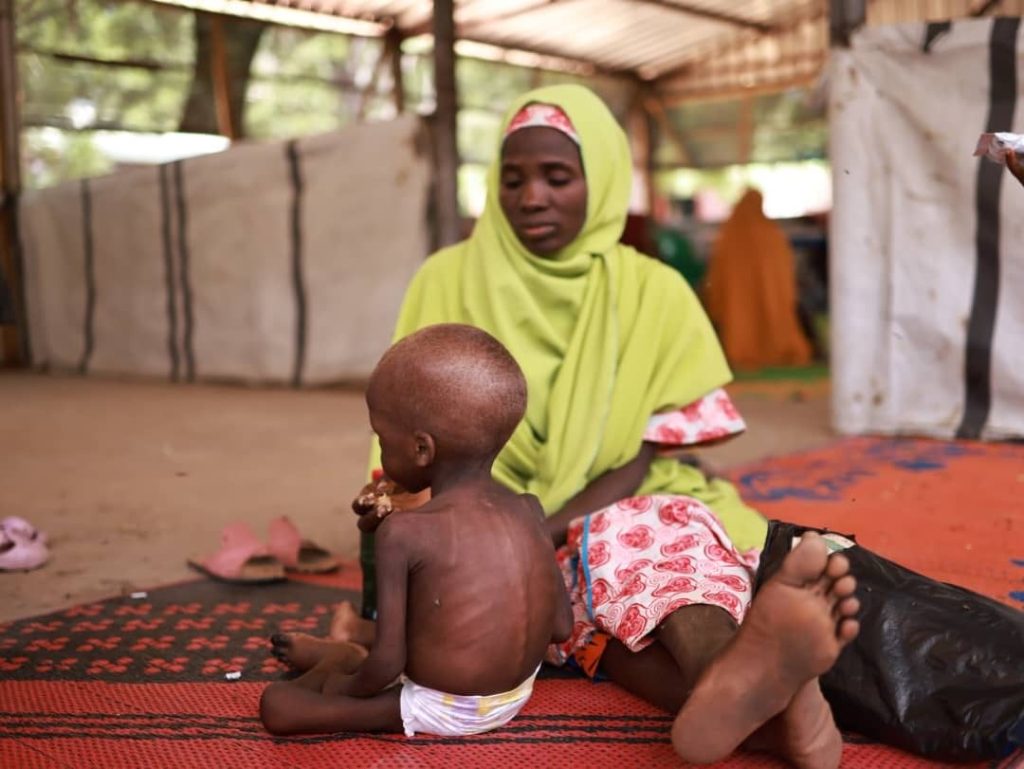MSF Raises Alarm Over Worsening Malnutrition Crisis in Northern Nigeria
Northern Nigeria faces a deepening hunger crisis as more children die from severe malnutrition.
MSF says Katsina is hardest hit, urging urgent food access and expanded treatment to save lives.
Médecins Sans Frontières (MSF), also known as Doctors Without Borders, has raised fresh concerns about the growing malnutrition crisis in Northern Nigeria, particularly in Katsina State.

In a statement on Friday by its Field Communication Officer, Abdulkareem Yakubu, MSF revealed a sharp rise in severely malnourished children admitted to its therapeutic feeding centers, with more cases now leading to death. The group has operated in Katsina since 2021 but says the situation is worsening rapidly.
This warning comes shortly after the World Food Program announced it would suspend emergency food and nutrition assistance to 1.3 million people in the Northeast by the end of July due to severe funding shortages.
A recent food survey carried out in Kaita Local Government Area of Katsina before the 2025 lean season showed over 90% of families were eating fewer meals each day. The crisis is made worse by disease outbreaks, poor access to vaccines and healthcare, widespread poverty, and persistent insecurity across the region.
In partnership with local authorities, MSF has launched emergency preventive efforts, distributing nutritional supplements to about 66,000 children in Mashi Local Government Area.
“The scale of malnutrition in Northern Nigeria is overwhelming, especially with international donors slashing their support,” MSF warned. By June 2025, nearly 70,000 children had already received care in Katsina alone almost 10,000 of them were in life-threatening condition. That figure marks a 30% increase compared to the same period last year.
Even more worrying, MSF reported a 208% surge in cases of nutritional oedema the deadliest form of malnutrition between January and June 2025 compared to 2024. Already, 652 children have died in MSF facilities this year due to delayed access to care.
The crisis isn’t limited to children. MSF said a screening of 750 mothers at five of its centers in Katsina showed that over half were acutely malnourished, with 13% suffering from severe cases.
To manage the influx of patients expected before the lean season ends in October, MSF has expanded its support to local health systems. In Katsina, the group opened a new Ambulatory Therapeutic Feeding Centre in Mashi and an additional Inpatient Centre in Turai, now providing 900 hospital beds across two facilities.
MSF’s Nigeria country representative, Ahmed Aldikhari, noted that 2024 marked a major turning point in the nutritional crisis, with a 25% rise in malnourished children from the previous year. However, current conditions are worse than anticipated, as families struggle to afford food even when it is available in markets.
Emmanuel Berbain, MSF’s nutrition referent, stressed that the most urgent way to prevent deaths is by ensuring families have direct access to food, either through mass food or supplement distribution, or through cash support where possible.
He also emphasized the need to increase treatment capacity more hospital beds, more funding, and better access to Ready-to-Use Therapeutic Food (RUTF). He added that older children and adults currently excluded from most aid programs must also be included in prevention efforts.
Vice President Kashim Shettima had earlier described the situation as a national emergency, warning that malnutrition is robbing nearly 40% of Nigerian children under five of their full physical and mental development.
In 2024, MSF treated more than 300,000 malnourished children across seven northern states a 25% increase from the previous year. In the first half of 2025 alone, nearly 100,000 children were treated in Sokoto, Kebbi, Katsina, and Zamfara, with about 25,000 requiring hospitalization.



